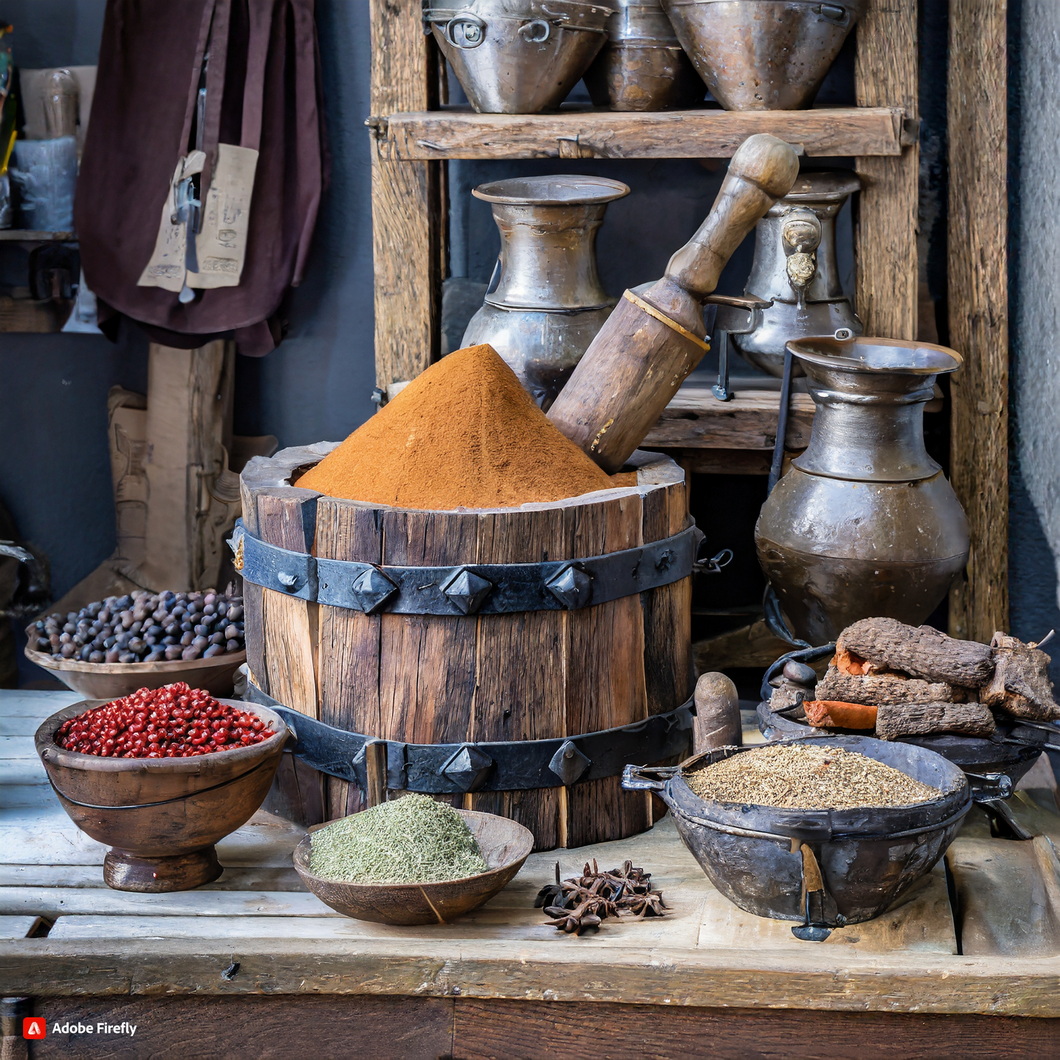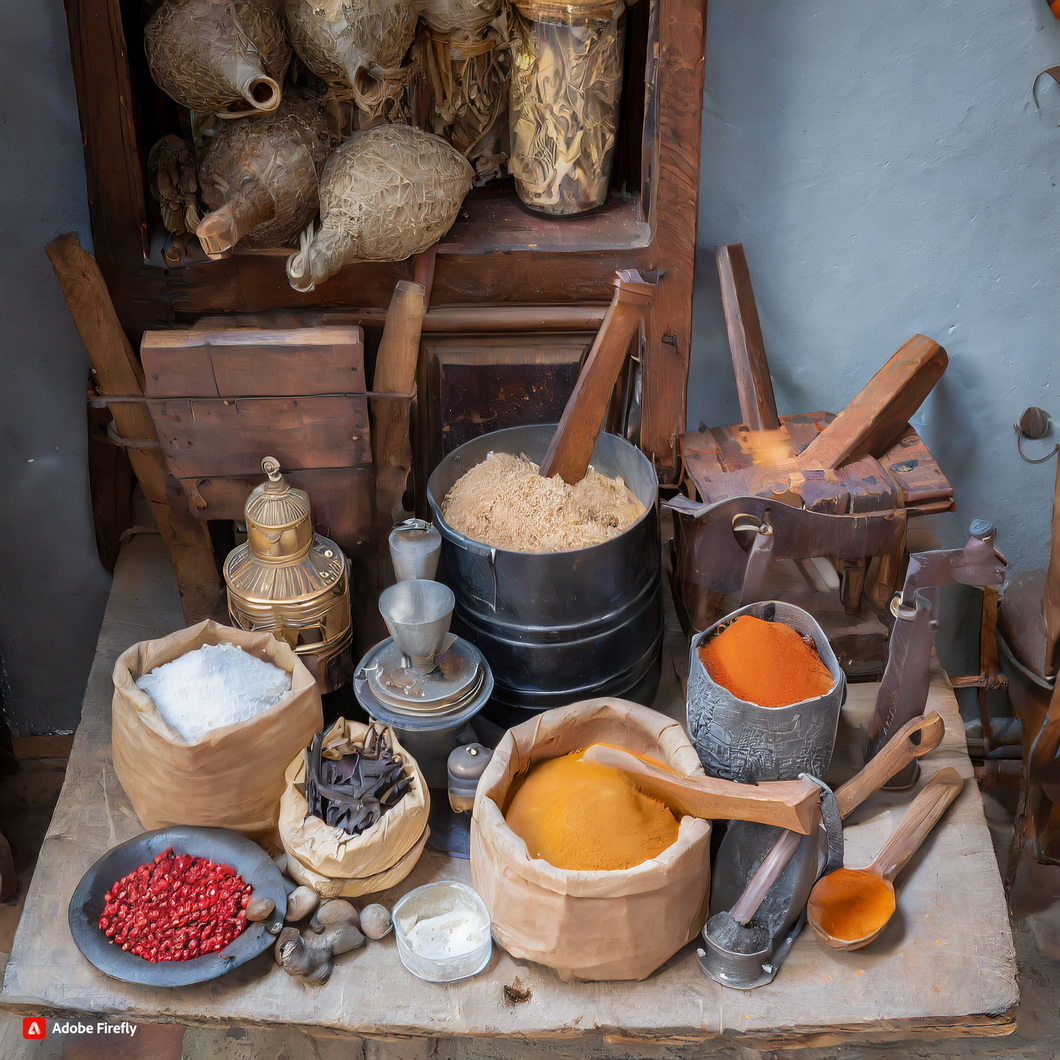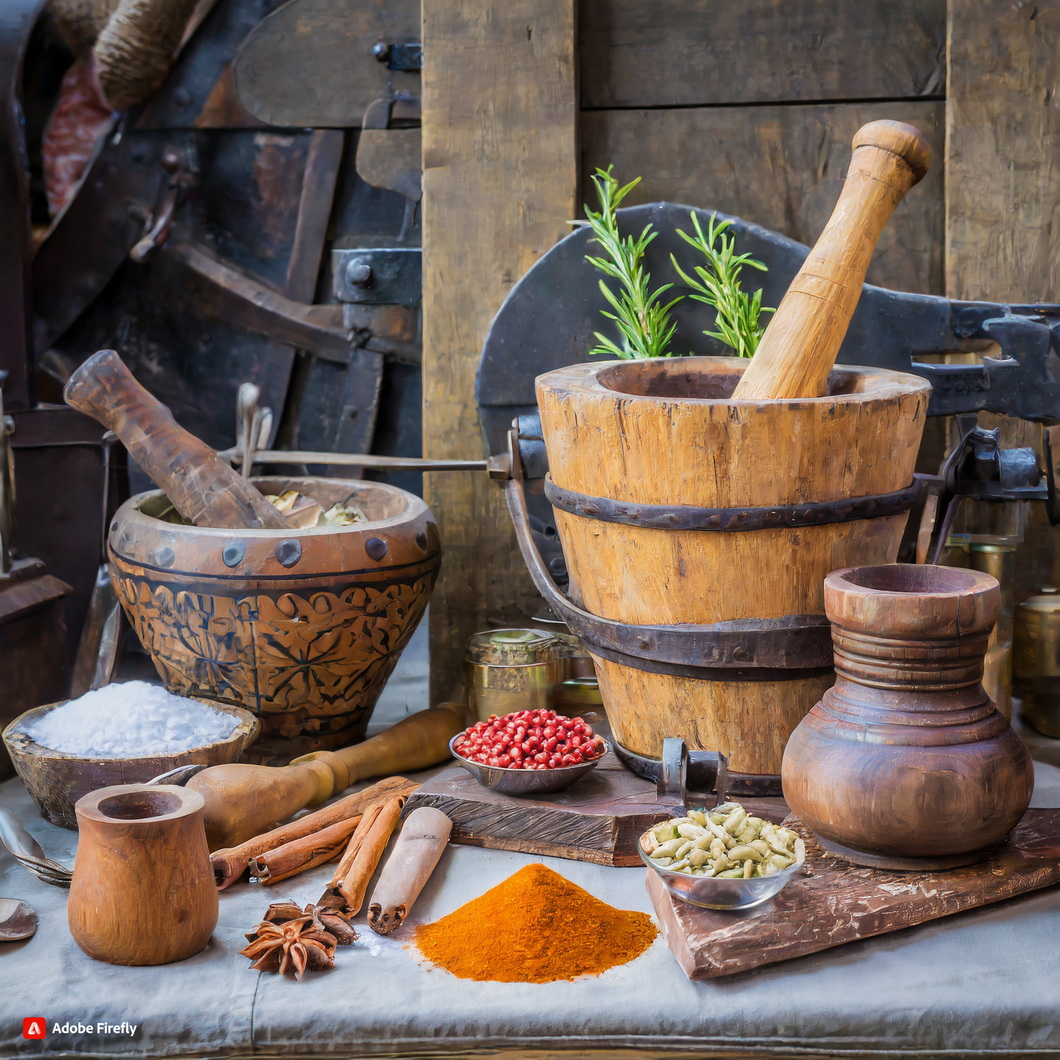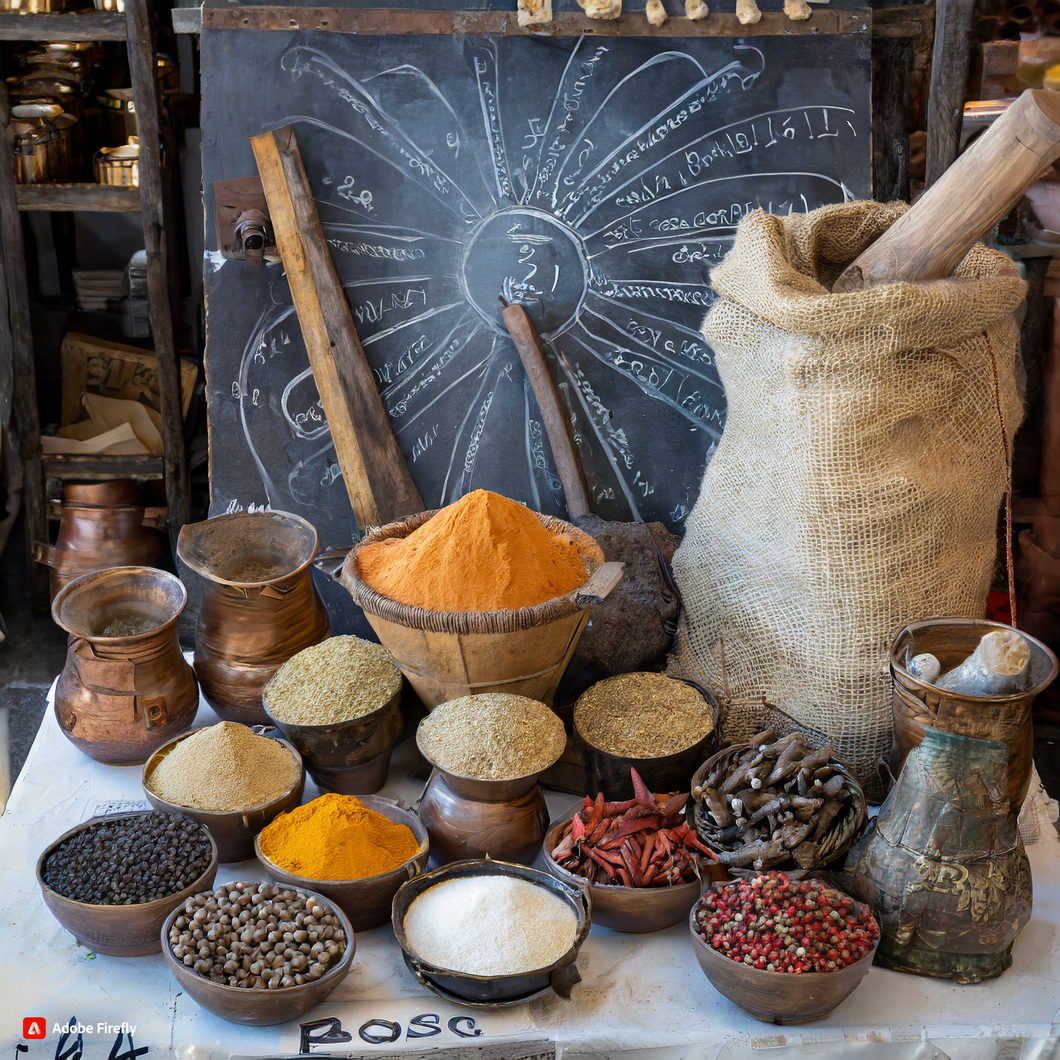Introduction
Spice routes have played a significant role in shaping the course of history, connecting civilizations and cultures through the trade of valuable spices. These routes, also known as the Spice trade, have a long and rich history that dates back to ancient times. From the Silk Road to the Indian Ocean trade, the Spice Routes have been instrumental in the exchange of goods, ideas, and technologies between different regions of the world. In this article, we will explore the historical roots of the Spice trade and its impact on global trade and cultural exchange.
The Impact of the Spice Trade on Global Economics and Culture
Spices have been an integral part of human history for centuries. From adding flavor to food to being used for medicinal purposes, spices have played a significant role in shaping cultures and economies around the world. The Spice trade, which refers to the buying and selling of spices, has been a major driving force behind global economics and cultural exchange. In this article, we will take a journey through the spice routes of history and explore the impact of the Spice trade on global economics and culture.

The Spice trade can be traced back to ancient civilizations such as the Egyptians, Greeks, and Romans. These civilizations recognized the value of spices and used them for various purposes. For instance, the Egyptians used spices in their embalming process, while the Greeks and Romans used them for cooking and medicinal purposes. However, it was the Arabs who were the first to establish a formal Spice trade network, connecting the East and the West.
During the Middle Ages, the Spice trade flourished as European countries began to explore new trade routes to the East. The demand for spices, such as pepper, cinnamon, and cloves, was high in Europe, and merchants were willing to pay high prices for them. This led to the rise of powerful empires, such as the Portuguese and the Dutch, who dominated the Spice trade and controlled the supply of spices to Europe.
The Spice trade had a significant impact on global economics during this period. It led to the growth of port cities, such as Venice and Lisbon, which became major trading hubs for spices. These cities became wealthy and powerful, and their economies were heavily dependent on the Spice trade. The Spice trade also played a crucial role in the development of banking and finance systems, as merchants needed to secure loans to finance their trade ventures.
The impact of the Spice trade was not limited to economics; it also had a profound effect on culture. The introduction of new spices to Europe led to a revolution in cooking and cuisine. Spices were used to enhance the flavor of food and preserve it, making it a valuable commodity. The use of spices also became a status symbol, and only the wealthy could afford to use them in their food. This led to the creation of new recipes and the fusion of different culinary traditions, resulting in the diverse cuisines we know today.
The Spice trade also had a significant impact on cultural exchange. As merchants traveled to different parts of the world in search of spices, they also brought back new ideas, customs, and beliefs. This led to the spread of knowledge and the exchange of ideas between different cultures. For instance, the Silk Road, which was a major trade route for spices, also facilitated the spread of Buddhism from India to China.
The Spice trade also had a dark side, as it was often associated with exploitation and colonization. European powers used their control over the Spice trade to establish colonies in Asia and Africa, leading to the exploitation of local populations and resources. This had a lasting impact on the cultures and economies of these regions.
In conclusion, the Spice trade has played a significant role in shaping global economics and culture. It has led to the rise and fall of empires, the development of new trade routes, and the fusion of different culinary traditions. While the Spice trade may not hold the same importance in today’s world, its impact on history is undeniable. So the next time you sprinkle some cinnamon on your oatmeal or add a dash of pepper to your soup, remember the long and fascinating journey these spices have taken to reach your kitchen.
Exploring the Ancient Spice Routes: From Asia to Europe and Beyond
Spices have been an integral part of human history for centuries. From adding flavor to food to being used for medicinal purposes, spices have played a significant role in shaping cultures and societies. But have you ever wondered how these spices made their way into our kitchens? The answer lies in the ancient spice routes that connected different parts of the world and facilitated the trade of these precious commodities.

The Spice trade can be traced back to as early as 3000 BCE, with evidence of spice usage found in ancient civilizations such as Egypt, Mesopotamia, and China. These early civilizations recognized the value of spices and began trading them with neighboring regions. However, it was the ancient spice routes that truly revolutionized the Spice trade and made it a global phenomenon. Read Breakfast Ideas for Weight Loss.
One of the most well-known ancient spice routes is the Silk Road, which connected Asia to Europe. This route was not only used for the trade of silk, but also for spices such as cinnamon, ginger, and pepper. The Silk Road was a network of land and sea routes that stretched over 4,000 miles, passing through various regions such as India, Persia, and the Mediterranean. This route not only facilitated the trade of spices but also led to the exchange of ideas, cultures, and religions.

Another important spice route was the Spice Route of the Indian Ocean, which connected the East with the West. This route was used to trade spices such as cloves, nutmeg, and cardamom, which were highly sought after by Europeans. The Spice Route of the Indian Ocean was a sea route that connected the ports of India, Sri Lanka, and Southeast Asia with the Middle East and East Africa. This route was crucial in the spread of Indian spices to the rest of the world. Read Lunch for Weight Loss.
The Spice trade was not limited to just Asia and Europe. The ancient spice routes also connected Africa with the rest of the world. The Trans-Saharan trade route was used to trade spices such as saffron, ginger, and cinnamon from North Africa to the Mediterranean and beyond. This route was also used to trade other commodities such as gold, ivory, and slaves.
The Spice trade was not just about the exchange of goods, but it also had a significant impact on the economies of the regions involved. Spices were highly valued and were often used as a form of currency. The demand for spices led to the establishment of new trade routes and the development of cities and ports along these routes. The Spice trade also played a crucial role in the rise and fall of empires, as controlling these routes meant controlling the Spice trade and its profits.

The ancient spice routes were not without their challenges. The long and treacherous journeys were often plagued by natural disasters, bandits, and political conflicts. However, the lure of spices and the potential profits were enough to keep traders and merchants motivated to brave these dangers. Read Recipes Weight Loss Salads.
The Spice trade continued to flourish until the 15th century when European explorers began to search for new routes to the East. This led to the discovery of the New World and the establishment of new trade routes. The discovery of the Americas also brought new spices such as chili peppers, vanilla, and allspice into the mix, further enriching the Spice trade.
In conclusion, the ancient spice routes played a crucial role in shaping the world as we know it today. They not only facilitated the trade of spices but also led to the exchange of ideas, cultures, and technologies. The Spice trade continues to thrive even today, with spices being an essential part of global cuisine. So the next time you add a pinch of cinnamon to your coffee or sprinkle some turmeric on your curry, remember the long and fascinating journey these spices have taken to reach your kitchen.
Q&A
Q: What were some of the most valuable spices traded along the Spice Routes?
A: Some of the most valuable spices traded along the Spice Routes included pepper, cinnamon, cloves, nutmeg, and ginger.
Conclusion
In conclusion, the Spice Routes of history have played a significant role in shaping the world we know today. The trade of spices has been a driving force for exploration, colonization, and cultural exchange between different regions and civilizations.
From the ancient Silk Road to the European Age of Discovery, the Spice trade has connected people and cultures across continents and has had a lasting impact on global economics, politics, and cuisine. The historical roots of Spice trade continue to be studied and celebrated, highlighting the importance of this trade route in human history.
Please follow us on linkedin. You can learn all best canadian food recipes you can check our Culinary 1TouchFood Youtube and Telegram 1TouchFood page. Don’t forget Fighting Obesity Magazine and Radio Cooking.

